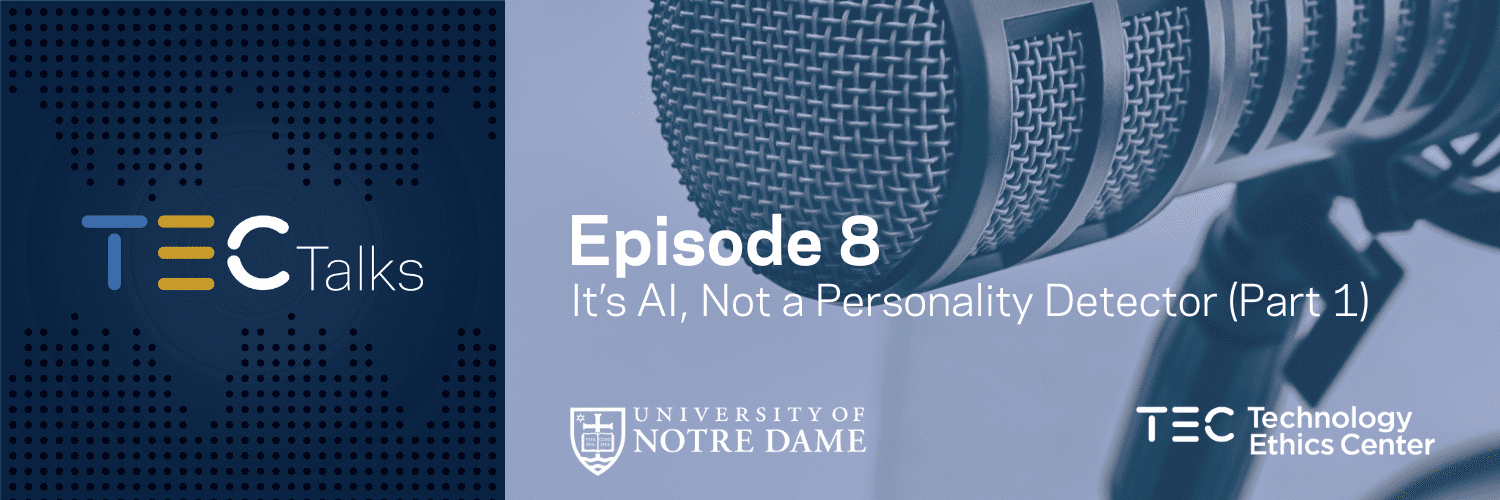It’s AI, Not a Personality Detector (Part 1)

It’s a TEC Talks first: two guests! Host Kirsten Martin is joined by Luke Stark, an assistant professor in the Faculty of Information and Media Studies at the University of Western Ontario, and Jevan Hutson, an associate at Hintze Law PLLC. Luke researches the historical, social, and ethical impacts of computing and artificial intelligence technologies, and Jevan‘s practice focuses on the intersection of privacy, security, and data ethics. They came on the show to talk about a paper they coauthored titled “Physiognomic Artificial Intelligence,” which appeared in the Fordham Intellectual Property, Media and Entertainment Law Journal. And with two guests, the conversation went a little longer than usual, so we’ve decided to break it into two parts. In part 1, Luke starts with a quick overview of physiognomy and phrenology, two pseudosciences with racialized and gendered histories that claim people’s inner traits can be discerned from their physical/behavioral characteristics and the shapes of their skulls, respectively. Although physiognomy and phrenology were widely discredited in the early 20th century, the notion that external appearances can be a way to access internal truths has made a comeback in the form of AI systems that purport to be able to perform this type of analysis. Jevan discusses some of the troubling commercial applications in areas like hiring, education, and criminal justice where we’re already seeing this “physiognomic AI” deployed. Luke also addresses why one human being making inferences about another—something we all engage in all the time with, as he points out, very mixed results—is fundamentally different from a computer trying to do the same. He says that this is simply beyond the capabilities of artificial intelligence, with Kirsten noting that because the flaw is in the concept of physiognomic AI itself, no amount of additional data will fix the problem.
Additional Resources
Presented by Notre Dame Technology Ethics Center
- Paper Discussed in the Episode: “Physiognomic Artificial Intelligence”
- Luke’s Bio
- Jevan’s Bio
- Episode Transcript
